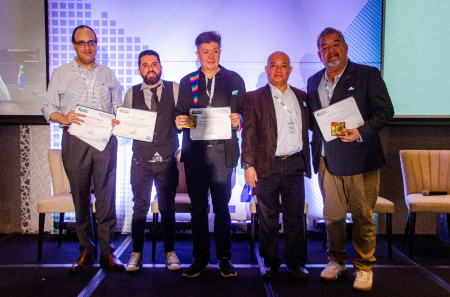2nd Latin American Nicotine and Risk Reduction Forum in Panama

PANAMA CITY, February 6, 2024 (Newswire.com) - Razón Autonomía Derecho A.C, RAUDER, a non-profit civil association that advocates for human rights, personal autonomy, and the free development of personality, organized the "2nd Latin American Nicotine and Risk Reduction Forum: Science, Regulation, and Activism" that took place today in Panama City. The objective was to analyze and discuss the crucial role of reduced-risk alternatives in the fight against tobacco.
The forum brought together legislators, experts, doctors, scientists, and activists from across the globe. They emphasized the importance of developing public policies that aim towards harm reduction and respect for human rights, and called for a humane and effective approach, that respects consumers' rights and provides safe, science-based regulated options.
Conversations were around studies and relevant practices from various countries on how alternatives, such as vapor products, can significantly contribute to harm reduction in smoking. Participants emphasized that their prohibition in countries such as Mexico, Brazil and Panama has led to an increase in illegal trade and limits smokers' options to access safer alternatives.
"It is essential to recognize and regulate vapor products as reduced-risk alternatives. Prohibition not only prevents smokers from legal options but drives the black market, and gives easier access to minors besides all the other negative consequences that it implies," explained Rafael Lara Liy, RAUDER’s director.
Lara also emphasized the importance of science-based information in enabling consumers to make informed decisions; he stressed the need for all voices to be considered in developing public policies. "Prohibition does not work nor does it solve the problem; the whole of society has the right to participate in shaping public policy. We want to contribute a perspective that also considers consumers' rights and information based on scientific evidence regarding reduced-risk alternatives," he said.
Doctor Marina Hoyo, a forum’s panelist, said: “As health professionals, we have a responsibility to stay up to date, analyze, understand, and question the evidence. But we also need to approach our patient care from a position of empathy towards people seeking to improve their health. That's why we must consider alternatives that reduce risks. This is the foundation of a therapeutic bond that aims to truly help the individual and not stigmatize them, but rather try to alleviate their condition.”
Source: RAUDER